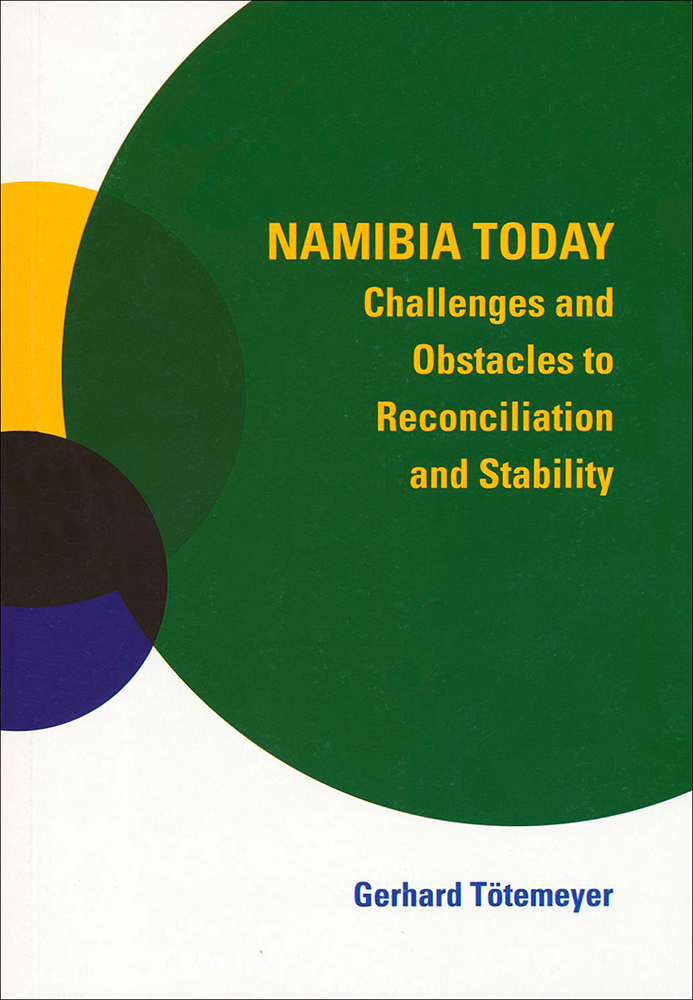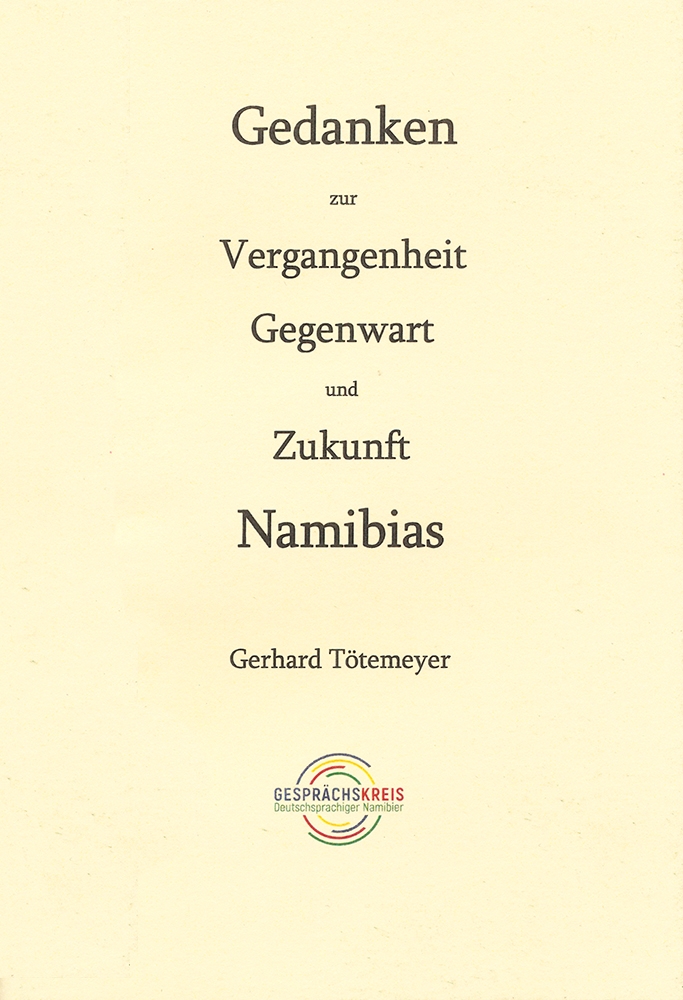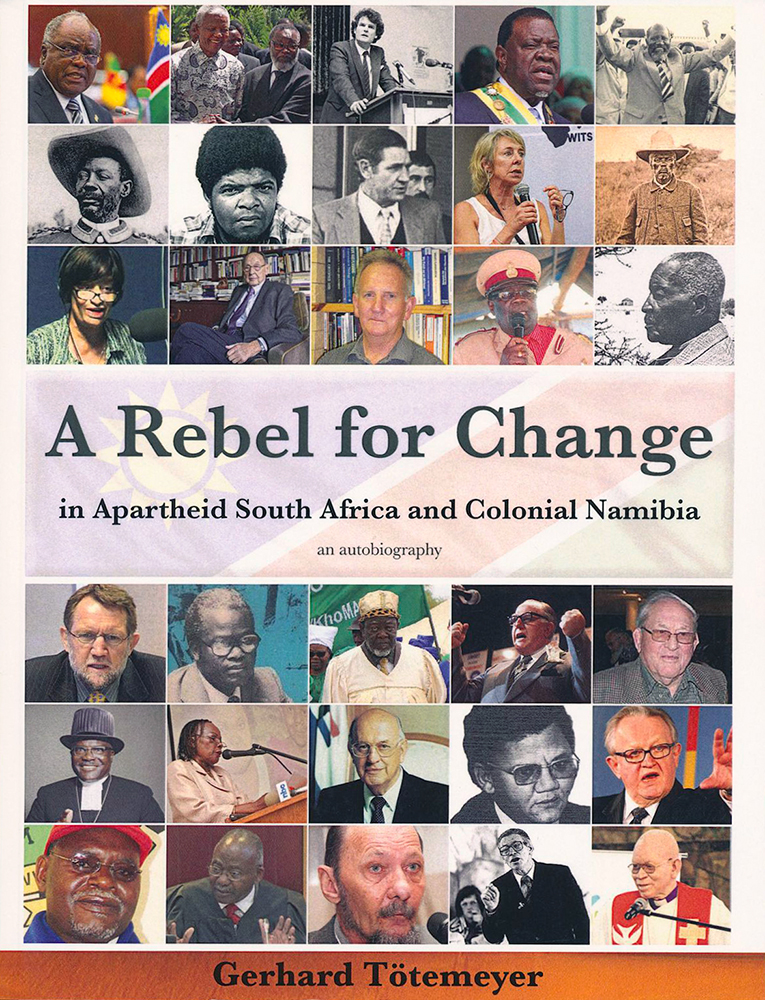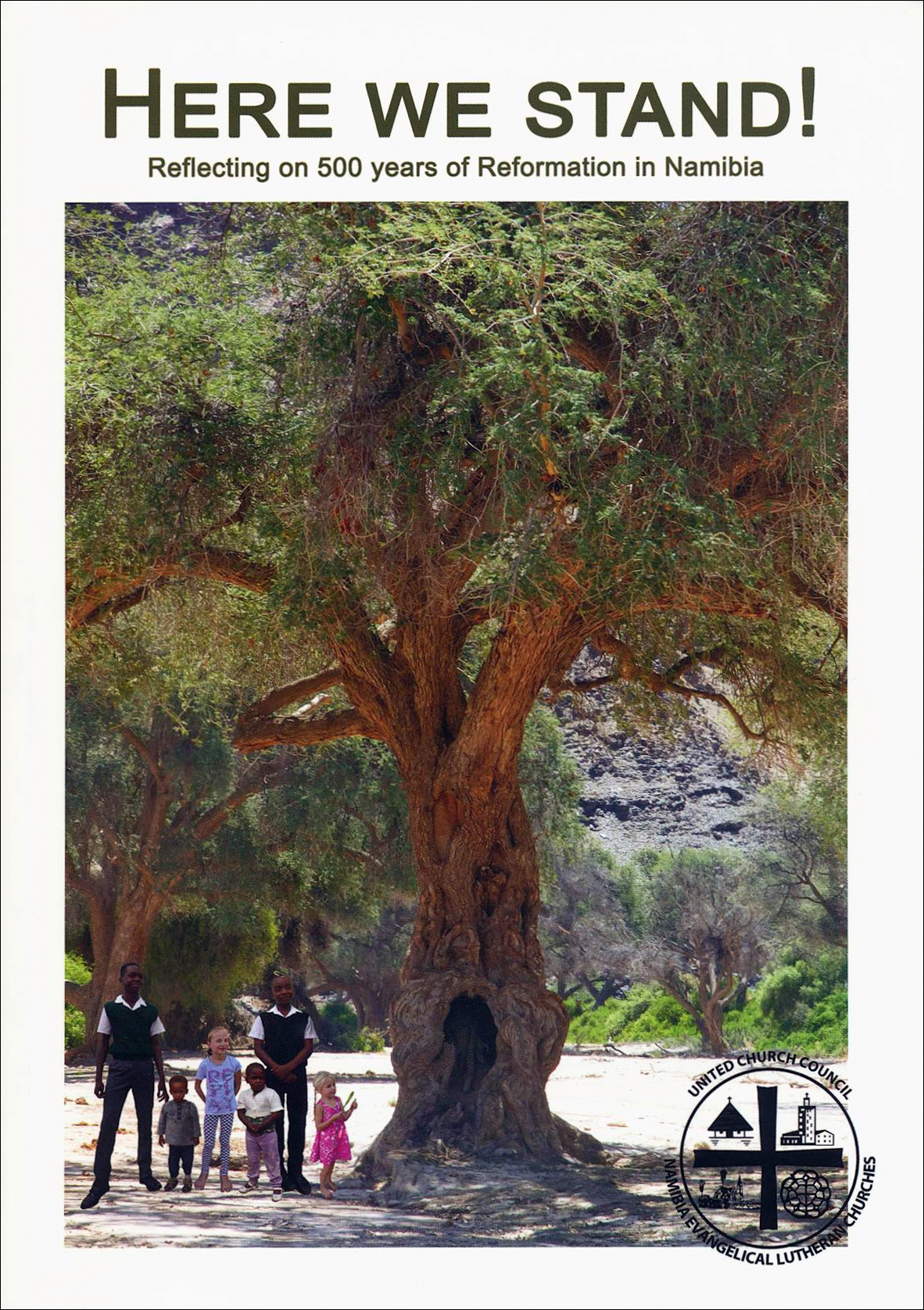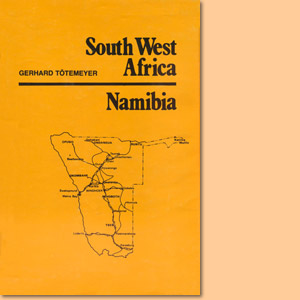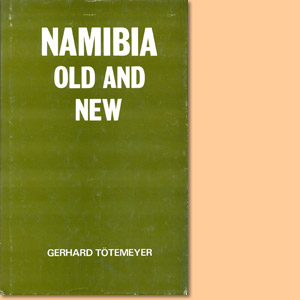Namibia Today, by Gerhard Tötemeyer
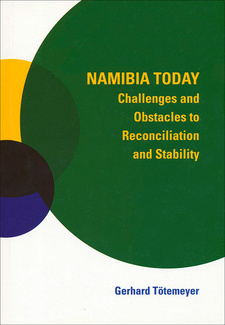
Namibia Today: Challenges and Obstacles to Reconciliation and Stability, by Gerhard Tötemeyer. Namibia Institute for Democracy. Windhoek, Namibia 2014. ISBN 9789991686592 / ISBN 978-99916-865-9-2
Although retired, Gerhard Tötemeyer remains active as researcher, publisher and consultant. His book, Namibia Today: Challenges and Obstacles to Reconciliation and Stability, was published by the Namibia Institute for Democracy in 2014.
[...] A number of critical issues in Namibia are reflected in Namibia Today: Challenges and Obstacles to Reconciliation and Stability, those that need to be revisited, re-evaluated, reconceptualised, re-articulated and revised. It is about re-thinking and considering where Namibia is possibly heading to if crucial issues and obstacles are not attended to timely. Namibia is faced by poverty, inequality, unemployment, and an education system in dire need of change and improvement. The health sector needs to be improved. Malnutrition among children remains a standing problem. Criminality, alcoholism and drug abuse have become challenging issues. Also gender based violence against women and rape of children. How far Namibia has moved from racial apartheid based capitalism to post-independence distributive capitalism remains a fundamental question. Racial equality and freedom marked the Namibian liberation struggle. However, economic equity and equal benefits for everybody as well as social justice to everyone have not been achieved yet. Does Namibia stand the litmus test of a fully operative constitutional democracy? What is the state of democracy in Namibia? Is it under siege? Has it become a spectator democracy? How best could one describe the kind of state the people of Namibia live in and what overall policy is pursued? Has ethnic and tribal diversity, which still marks the Namibian state community, become an obstacle to social harmony and destructive to the nation-building process? Have targets such as internal peace, stability and national reconciliation been achieved? If not, what could be the hindrance factor? What kind of ideology does the ruling party adhere to? Does it pursue a neo-liberal democracy or is it a kind of social democracy? Is it a social democratic version of democratic capitalism which implies a more socially responsible democratic dispensation? Can for example the private sector in partnership with the state become more engaged in the overall transformation and development process of Namibia? What could and should be the private sector's obligation and contribution to a more equitable society? Is the contention correct that many victims of the apartheid policy have become harmful forces in post-independent Namibia, enriching themselves at the expense of the poor, often being part of corruption, being the most devastating cancer of the Namibian society? The topic corruption is extensively addressed and especially the effect it has on a declining morality in the society. Namibia is suffering from a moral recession and crisis. Both impact the moral fibre of society negatively. Related to morality and ethics is the concept ubuntu which relates to humaneness, sharing and caring, and which needs renewed attention. Churches, schools and families have hitherto failed in their duty to provide society with an acceptable moral framework, a kind of code of ethics, that can be directive and normative. The question arises who are the actual beneficiaries of the post-independence dispensation? Are these still predominantly whites plus those black fellow country-men and women in the burgeoning middle and upper class, belonging to the nouveau-riche elite? What about politicians and bureaucrats? Much has been achieved since independence, but much needs still to be done. Namibia is faced by ethnic and tribal divisions and competition threatening national unity. An overlap between race and class is prevalent in the Namibian society. There is a widening gap between the black middle and upper class and the black workers class which affects the building of a cohesive and equal society. [...]
This is an excerpt from Namibia Today, by Gerhard Tötemeyer.
Title: Namibia Today
Subtitle: Challenges and Obstacles to Reconciliation and Stability
Author: Gerhard Tötemeyer
Genre: Social Study
Publisher: Namibia Institute for Democracy
Windhoek, Namibia 2014
ISBN 9789991686592 / ISBN 978-99916-865-9-2
Softcover, 15 x 21 cm, 144 pages
Tötemeyer, Gerhard im Namibiana-Buchangebot
Namibia Today
Namibia today: Challenges and obstacles to reconciliation and stability three decades after independance.
Gedanken zur Vergangenheit, Gegenwart und Zukunft Namibias
Gerhard Tötemeyers Gedanken zur Vergangenheit, Gegenwart und Zukunft Namibias.
A Rebel for Change in Apartheid South Africa and Colonial Namibia
A Rebel for Change in Apartheid South Africa and Colonial Namibia is Professor Gerhard Tötemeyer's autobiography.
Here we stand. Reflecting on 500 years of Reformation in Namibia
Here we stand: Reflecting on 500 years of Reformation in Namibia includes articles by Namibian bishops, theologians, pastors, academics and lay members of the Lutheran community.
Das Werden und Wirken eines Rebellen
Das Buch 'Das Werden und Wirken eines Rebellen' sind autobiographische und historische Notizen des Deutsch-Namibiers Gerhard Tötemeyer.
South West Africa, Namibia
A detailed study of the socio economic conditions pertaining at a transitional time in the history of South West Africa, Namibia.
Namibia Old and New. Traditional and Modern Leaders in Ovamboland
Namibia Old and New is focused on the development of Ovamboland from a traditional society to a modern one.

